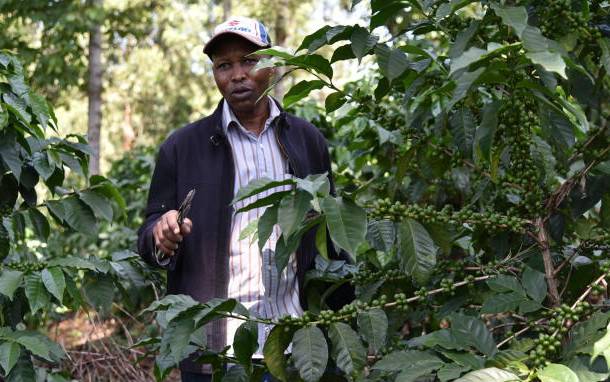×
The Standard e-Paper
Join Thousands Daily

Charles Mutwiri at his coffee farm in Imenti North, Meru County. He gets up to 20 kilos from a single tree, as the national average is two kilos per tree. He said he practices good husbandry and shuns fertilisers. [File, Standard]
The price of your favourite cup of coffee could in the coming months go up as consumer levies scrapped nearly a decade ago are reintroduced.